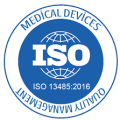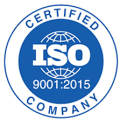Our mission.
We revolutionise protein diagnostics. As top researchers in the field of protein science, we pursue the goal of detecting neurodegenerative diseases at an early stage in order to prevent their progression to symptomatic conditions.
Learn More About betaSENSE

iRS – from idea to innovation.
The betaSENSE technology detects changes in relevant proteins in the body long before the first symptoms of neurodegenerative diseases manifest. Thanks to iRS, the personal risk of disease can be determined precisely on the basis of a small sample of body fluids. This gives physicians and affected persons a valuable head start for therapies – and at the same time sets the course for the development of new drugs. Making independence in old age a matter of course in the future.
The betaSENSE teams – many areas of expertise, one shared goal.
At betaSENSE, around 50 employees are currently working to combat neurodegenerative diseases such as Alzheimer’s, Parkinson’s or ALS at an early stage. Combining the power of various scientific disciplines for medical progress.
Management
Our management team is responsible for the development and implementation of betaSENSE’s corporate strategy. Prof. Dr. Klaus Gerwert initiated the spin-off of his protein diagnostics project as a leading top researcher at Ruhr University Bochum – the origin of betaSENSE.
Research & Development
The Research & Development team (R&D) develops new technologies for applications and products in the field of so-called in-vitro diagnostics (IVD). Where analysis of body fluids is intended to allow conclusions about a person’s state of health, our know-how is in demand. The team delivers innovative solutions for complex issues, processes and systems.
Software development
The software development team works hand in hand with the R&D team to develop individual and future-proof software solutions for in-vitro diagnostics (IVD) applications – from prototyping to the finished solution.
Antibody development and production
The antibody team is developing disease-specific antibodies and antibody fragments in order to be able to determine the risk of disease for various neurodegenerative diseases using the betaSENSE method.
The team is also responsible for the discovery of new antibodies against misfolded proteins whose structural changes indicate emerging diseases.
Biochip production
The Biochip team is responsible for production of the sensor, whose patented surface, as part of the betaSENSE technology, allows analysis of a variety of proteins. With its platform technology, it opens new perspectives for work in adjacent fields such as pharmaceutical research and science.
Quality Management
The Quality Management (QM) team has implemented a reliable QM system at betaSENSE and ensures maximum safety and quality for betaSENSE products and systems day after day. In exchange with the
other teams, it ensures a continuous improvement process.
Working together so that self-determination in old age becomes a matter of course.
“Being able to detect not just one, but many neurodegenerative diseases early with our platform technology makes me proud as a scientist.”
Sandra Zelosko, Antibody Developer
“Evaluating results as a team and drawing ground-breaking conclusions together is a great pleasure for me every time.”
Dr. Robin Wanka, Head of the Biochip Laboratory
“I like to get to the bottom of things. At betaSENSE, I can help to improve the quality of life of many people affected by neurodegenerative diseases.”
Dr. Christian Völlmecke, Quality Manager
“We identify those who are better off starting drug therapy or adjusting their lifestyle already today. This is a breakthrough in the diagnosis of neurodegenerative diseases!”
Prof. Dr. Klaus Gerwert, biophysicist, founder and CEO of betaSENSE
“Our immuno-infrared sensor detects changes of protein structures in body fluids. The precision of this prognostic biomarker never ceases to amaze me!”
Deniz Sabak, Technician
Join us!
The betaSENSE
Story.
betaSENSE emerged from a group of researchers at the Ruhr University Bochum led by Prof. Dr. Klaus Gerwert. The most important milestones on the way since his appointment as professor in 1993 from basic research to international protein diagnostics pioneer:
2010
The European protein research consortium PURE (Protein Research Unit Ruhr within Europe), founded by Professor Gerwert and based at the Ruhr University Bochum, is intended to help bring research results and methods into clinical application. The vision: to use protein changes as biomarkers for oncological and neurodegenerative diseases.
2014
The Centre for Molecular Protein Diagnostics (ProDi) at Ruhr University Bochum is approved by the Science Council as a scientific project of outstanding importance. Prof. Dr. Klaus Gerwert becomes the founding director. In the future, at ProDi established platform technologies will be linked with new methods for protein analysis.
2015
For the first time worldwide, Prof. Gerwert's team demonstrates a blood-based biomarker for Alzheimer's disease based on protein structure changes and subsequently receives the cover story of the Journal of Biophotonics.
2018
The newly developed blood biomarker is gaining international attention. The EMBO Journal devotes its cover story to the infrared sensor for label-free determination of the structure of beta-amyloid protein.
2020
Prof. Dr. Klaus Gerwert founded betaSENSE GmbH as IR Diganstics IP Holding as a spin off from University Bochum. Later the UG was transformed into betaSENSE GmbH when Podesta GmbH, a Hector Group Company, entered betaSENSE, paving the way for developing a revolutionary technology into a marketable product. The spin-off marks the beginning of a new era in early diagnostics for neurodegenerative diseases.
since 2021
Some 50 employees are working together as a team to bring the betaSENSE technology to the market. The new company headquarters on the Health Campus near the buildings of Ruhr University Bochum offers them optimal working conditions in terms of equipment and infrastructure. With their innovative analytical method, they are creating a valuable basis for pharmaceutical research, for conducting clinical trials, and for the validation of study-related diagnostics.
20 years of leadership in protein diagnostics research.
Our current publications at a glance:Analytical Chemistry, 2016
Analytical Chemistry, 2016
Amyloid-β-Secondary Structure Distribution in Cerebrospinal Fluid and Blood Measured by an Immuno-Infrared-Sensor: A Biomarker Candidate for Alzheimer’s Disease
Go to article
Journal of Biophotonics, 2016
Journal of Biophotonics, 2016
An infrared sensor analysing label-free the secondary structure of the Abeta peptide in presence of complex fluids
Go to article


